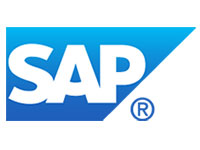
RFID, or radio frequency identification, has gained ascendancy in the corporate world more by fiat than through efforts to persuade suppliers that the technology could deliver internal returns — at least, in the beginning. With the requirement to deploy it or lose contracts handed down by such entities as Wal-Mart and the Department of Defense, partners scrambled to comply.
To be sure, there was always the tantalizing prospect that tracking pallets and containers would lead to a massive return on investment. However, it wasn’t until very recently that the ROI promise appeared likely to materialize.
Two separate reports suggest that wider adoption of RFID in the supply chain may be on hand.
From $1.2B to $3.5B
Global revenues for RFID products are likely to grow by almost a third to reach US$1.2 billion this year, predicts a report released by Gartner. Within the next four years, worldwide revenues could top $3.5 billion. Much of this growth will shift away from projects that are compliance-oriented to those that are revenue-generating and innovative, according to Gartner Research Director Chad Eschinger.
As companies move into this exploration phase, Gartner says, demand is expected to grow for RFID-based technology that supports in-store inventory management projects, as well as other functions.
Hot Right Now
Also charting a new phase in RFID deployment, a report from ABI Research observes that the increase in available RFID technology and applications is moving the market beyond “traditional closed-loop application environments” — a category that includes security/access control, animal ID, toll collection, and automobile immobilization — to “hot-right-now” asset management and open-loop supply chain applications.
Many organizations are considering RFID as a means of business process improvement, notes ABI — enabling a more visible and effective supply chain and better tracking of corporate assets.
The next stage of mainstream use will be in the supply chain, ABI Research director Michael Liard told CRM Buyer.
Compliance is old news to both the industry and the unfortunate early adopters that bore most of the higher costs of these first endeavors, he said. “Now, the industry has been charged with communicating and proving the value proposition — particularly in supply chain environments — of this technology. Previous years’ pilots have now progressed into wider implementations.”
Many end users now accept that RFID technology reliability — and its business case — can top cost as the leading consideration, notes the report.
Consider those industries where it is widely deployed already: fashion and footwear, and pharma. Fashion-and-footwear supply chains are in need of greater cost control, Liard said, which is why they have turned to RFID.
The pharmaceutical industry uses the technology as a defense against piracy and theft.












































Social CRM
See all Social CRM